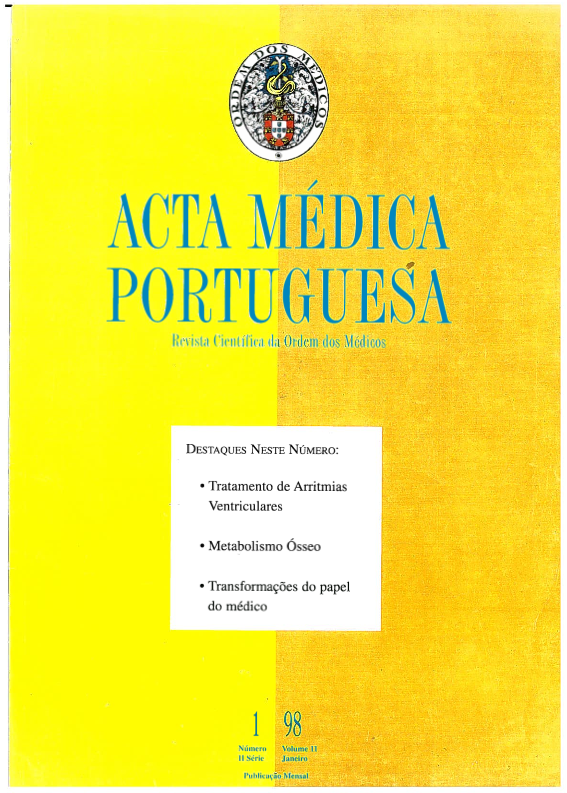Prospective registry of cerebrovascular diseases. Characterization of patients and methodology evaluation.
DOI:
https://doi.org/10.20344/amp.2204Abstract
Hospital-based stroke data banks can contribute to a better management of stroke patients with consequent reduction of associated morbidity and mortality.The characterisation of stroke patients and validation of the hospital stroke registry.Hospital S.Pedro, Vila Real, a secondary neurological referral centre for 450.000 inhabitants of interior north Portugal.Analysis of data collected over one year of a prospective computerised stroke registry. Evaluation of completeness of the registry by independent analysis from emergency room data files and percentage of items entirely filled up.in a one year period were registered 349 patients (186 F; 163 M) with a mean age at stroke of 69 years. The majority (73.3%) lived in the hospital district. Most patients went directly to the hospital from their homes, and in the first 24 hours of symptoms onset. Cerebral infarction was diagnosed in 35.2% of patients, followed from lacunas in 24.6% and hypertensive haemorrhages in 22.3%. Arterial hypertension was found in 60.1% of cases, there were 11.4% of deaths and a Rankin score > 3 was present at hospital discharge in 39.5% of patients. There was a decrease in the register during the one-year period, evaluated comparing two months of emergency room files; we found a missing rate of protocols items varying from 0.8% and 8.8%.Hospital-based stroke data banks can provide the best available information on stroke patients characteristics and the presence of stroke risk factors. Registry protocols must be kept simple, easy to fill and periodically surveyed in order to lessen the number of missing items.Downloads
Downloads
How to Cite
Issue
Section
License
All the articles published in the AMP are open access and comply with the requirements of funding agencies or academic institutions. The AMP is governed by the terms of the Creative Commons ‘Attribution – Non-Commercial Use - (CC-BY-NC)’ license, regarding the use by third parties.
It is the author’s responsibility to obtain approval for the reproduction of figures, tables, etc. from other publications.
Upon acceptance of an article for publication, the authors will be asked to complete the ICMJE “Copyright Liability and Copyright Sharing Statement “(http://www.actamedicaportuguesa.com/info/AMP-NormasPublicacao.pdf) and the “Declaration of Potential Conflicts of Interest” (http:// www.icmje.org/conflicts-of-interest). An e-mail will be sent to the corresponding author to acknowledge receipt of the manuscript.
After publication, the authors are authorised to make their articles available in repositories of their institutions of origin, as long as they always mention where they were published and according to the Creative Commons license.









